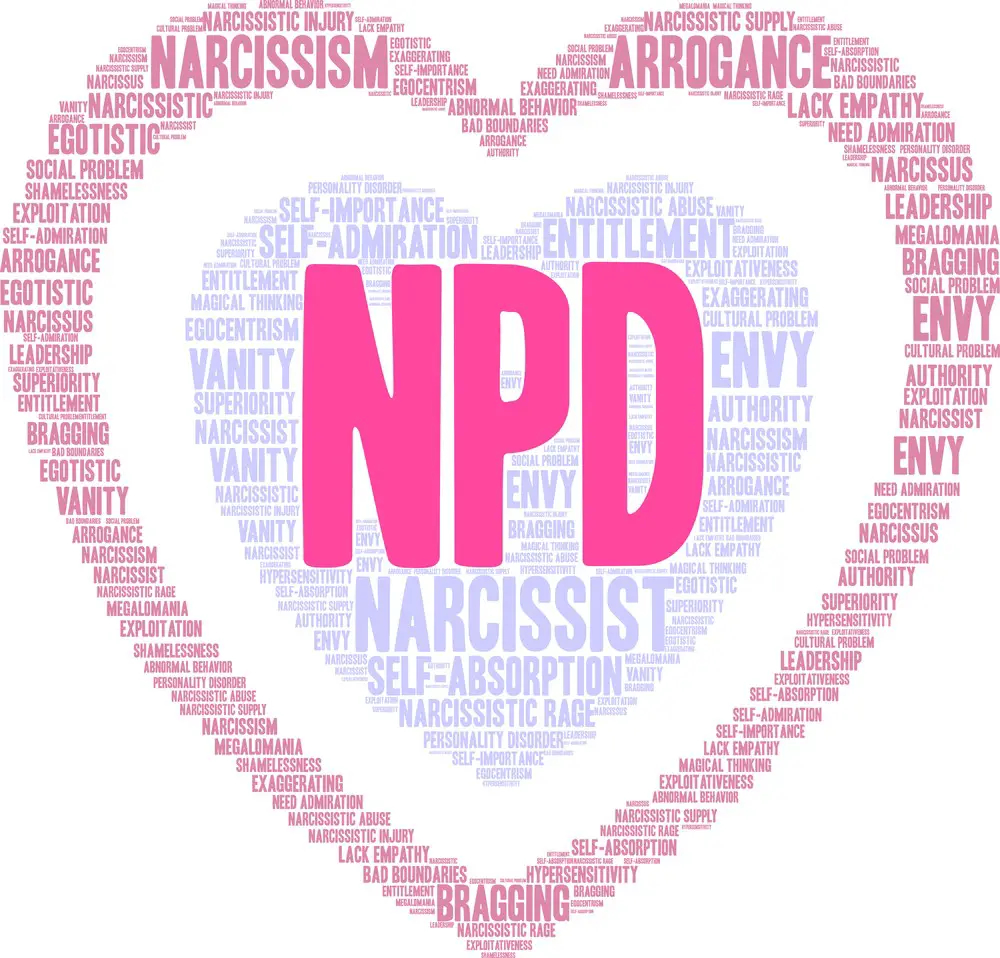As a BetterHelp affiliate, we receive compensation from BetterHelp if you purchase products or services through the links provided
Love bombing, a manipulative tactic frequently employed by narcissists and other toxic individuals, often overwhelms victims. This behavior is characterized by an intense and seemingly genuine display of love, affection, and attention, followed by a sudden withdrawal and a complete disregard for the victim’s well-being. The duration of a love bombing can vary significantly, depending on various factors such as the personalities involved and the specific goals of the manipulator.
Understanding the warning signs and phases of love bombing and the role social media plays in its prevalence is essential for protecting oneself from falling victim to this damaging behavior. Additionally, recognizing its long-lasting effects on victims, and taking appropriate steps to guard against potential love bombers, can substantially reduce the emotional damage they inflict.
Key Takeaways
- Love bombing’s duration depends on factors like personalities and the manipulator’s goals.
- Recognizing warning signs and phases is crucial in protecting oneself from love bombing.
- Understanding the role of social media and taking protective steps can reduce emotional damage.
 Understanding Love Bombing
Understanding Love Bombing
Love bombing is a manipulative tactic that some individuals, often narcissists, employ to gain control over someone’s emotions and establish a strong attachment. In this phase, the manipulator showers the target with excessive affection, compliments, and declarations of love, sometimes very early in the relationship.
The goal behind love bombing is to establish a sense of dependency and overwhelm the target with positive attention. This can lead the recipient to believe they have found a genuine connection with their partner, making it difficult to separate the manipulation from the sincerity. Love bombing can last for varying durations, depending on the manipulator’s goals or the target’s response to the attention.
It is essential to recognize that love bombing is not born out of genuine affection but rather stems from the manipulator’s desire for control. One of the key aspects of love bombing is the attachment it creates. By bombarding the target with excessive love and attention, the manipulator fosters a sense of dependency, making it harder for the target to assert their boundaries or walk away from the relationship.
While love bombing can be emotionally intoxicating, it is crucial to remain vigilant and watch for any signs of manipulation. Some potential indicators include:
- Constant communication and excessive texting or phone calls
- Over-the-top compliments or flattery
- Making plans for the future very early on
- Showering you with gifts or grand gestures of love
- Jealousy and possessiveness
- The urge to isolate yourself from friends or family
Awareness of these signs and a clear understanding of love bombing can help protect individuals from falling prey to manipulative relationships. So, remember: love should be a natural process that develops over time, not an avalanche of attention that smothers and controls.
 Signs of Love Bombing
Signs of Love Bombing
Constant Communication
One of the key signs of love bombing is constant communication. The person engaging in a love bombing will regularly contact the target through text messages, phone calls, or social media. This may involve checking in frequently to see how their day is going or sending them random messages to let them know they’re thinking about them. They may even buy plane tickets to surprise their target, further showcasing their dedication. This communication may sometimes be overwhelming and give the target a dopamine rush from constant attention and affection.
Excessive Compliments and Flattery
Another sign of love bombing is the use of excessive compliments and flattery. This may include showering their target with romantic gestures or regular gifts like flowers and chocolates. In addition, the love bomber may provide a stream of compliments, praising their target’s appearance, personality, or accomplishments. These gestures can make the target feel special and loved but also create an unrealistic relationship expectation.
Rapid Commitment
An individual engaging in love bombing may demonstrate a desire for rapid commitment, quickly expressing their love and affection for their target. This can manifest as a desire to spend every waking moment together or making plans, such as moving in together or getting married, early on in the relationship. This rapid commitment may appeal to some but can be a sign of controlling nature, as the love bomber may want to solidify their target’s emotional investment and dependency on them.
In conclusion, it’s essential to recognize the signs of love bombing, such as constant communication, excessive compliments and flattery, and rapid commitment, as they can indicate an unhealthy and potentially manipulative relationship dynamic. Awareness of these signs can help individuals avoid falling victim to love bombing and ensuing relationship issues.
The Role of a Narcissist
Identifying Narcissistic Behavior
Narcissistic Personality Disorder (NPD) is characterized by a persistent pattern of grandiosity, a constant need for admiration, and a lack of empathy toward others. Individuals with NPD often exhibit narcissistic behaviors, which can be broadly categorized into three types: grandiose, covert, and communal.
Grandiose narcissists are openly self-centered and believe they are superior to others. They often display arrogance and a constant need for praise and attention.
Covert narcissists have a more subtle approach, masking their need for admiration and approval by presenting themselves as humble or vulnerable. They may appear to be empathetic but can quickly turn manipulative and deceitful.
Communal narcissists thrive in social settings, constantly seeking to impress others with altruistic deeds or community involvement. They crave admiration through their public displays of kindness or selflessness.
Common tactics utilized by narcissists include gaslighting, emotional manipulation, and exploiting others to maintain their narcissistic supply – the attention and approval they seek from those around them.
 Narcissists and Love Bombing
Narcissists and Love Bombing
Love bombing is a manipulative technique often used by narcissists to gain the affection and trust of others. It involves showering a potential partner with excessive praise, gifts, and attention to create a strong emotional bond quickly. Narcissists use love bombing to control their victims and secure their narcissistic supply.
During the love bombing phase, a narcissist may appear attentive and committed to the relationship. However, their true nature emerges once they feel confident that they have established control. They may become distant, critical, or even abusive while simultaneously gaslighting their partner to believe they cause any relationship problems.
While it is difficult to pinpoint exactly how long a love bombing can last, it is important to recognize the potential signs of narcissistic abuse in a relationship. The duration may vary depending on the type of narcissist and their specific motivations. Still, typically, love bombing begins to fade once the narcissist feels secure in their power over the other person. As the relationship progresses, the cycle of love bombing, devaluation, and discard may occur repeatedly, making it challenging for the victim to recognize and escape the abusive dynamics.
Phases in Love Bombing Cycle
Idealization Phase
During the Idealization Phase, the love bomber showers their target affection, compliments, and attention. This stage creates an intense emotional connection between the two people, resulting in a strong sense of trust and dependence. Love bombers use this phase to make their targets feel special, loved, and important. They may engage in future faking, promising a future together, and making grand plans. This phase can last anywhere from a few weeks to several months.
Devaluation Phase
The Devaluation Phase follows the idealization phase, marking a significant shift in the love-bombing relationship. The love bomber begins to devalue and criticize their target, often with subtle methods like passive-aggressive remarks or mocking humor. An increase in arguments and emotional turmoil characterizes the devaluation phase. The goal of the love bomber during the devaluation phase is to create self-doubt and insecurity in their target, often leading to feelings of worthlessness. The length of this phase can vary, with some cases lasting only a few days, while others can continue for months.
Discard Phase
The final stage in the love bombing cycle is the Discard Phase. This phase occurs when the love bomber begins to withdraw their affection, attention, and support, often without explanation. The discard phase is challenging for the target, as they are left to cope with the emotional pain and confusion of the sudden change. The narcissistic abuse cycle often includes discarding and returning to the idealization phase, creating a toxic cycle of manipulation and emotional abuse. The duration of the discard phase may vary, sometimes only days or weeks, but in some cases extending to months or even years.
Each love bombing situation can be unique, and the duration of each phase may vary depending on the individuals involved. It is important to recognize the signs of love bombing and seek support when necessary to overcome its damaging effects.
Effects on the Victim
Emotional Impact
Love bombing, a manipulative tactic in which someone showers their target with excessive attention and affection, can significantly impact the victim. The intense, overwhelming nature of love bombing can be confusing and disorienting. As the perpetrator creates a rollercoaster of emotional highs and lows, the victim may find it difficult to maintain healthy boundaries. Gradually, the victim may become more susceptible to emotional abuse as they strive to regain the initial feelings of love and security.
Impact on Self-Esteem
Love bombing can cause a decline in the self-esteem of the victim. Initially, the victim may feel special and valued due to the constant praise and attention. However, as the love bomber begins to reveal their true motives and manipulative behavior, the victim may experience a sense of betrayal and loss of self-worth. In extreme cases, this can lead to low self-esteem and even self-hatred.
Trust and Relationship Implications
Trust is essential to any healthy relationship, and love bombing can severely undermine it. Victims of love bombing may begin to question their judgment and ability to identify red flags, developing a heightened sense of insecurity and mistrust. This can affect their ability to form secure, respectful connections in future relationships.
Additionally, love bombing can be a precursor to more severe forms of domestic abuse, including physical violence. The love bomber’s manipulation of the victim’s emotions is often a precursor to controlling and abusive behavior as they seek to assert power and control over their partner. Victims who cannot recognize and establish healthy relationship boundaries may become increasingly vulnerable to domestic violence and abuse.
Social Media and Love Bombing
In today’s world, social media and technology play a significant role in how people communicate and build relationships. Love bombing, a common manipulative tactic, has also found its way into social media. Love bombers are individuals who use excessive affection, attention, and praise to gain control over their targets.
Social media platforms like Facebook, Instagram, and Twitter provide an ideal environment for love bombers. They leverage constant contact, online visibility, and technology to control and feed their emotional hunger. Due to the digital nature of these platforms, they can instantly shower their targets with messages, comments, and likes, creating an overwhelming sense of adulation and infatuation.
Controlling behavior is another key element of love bombing. On social media, love bombers can easily monitor their targets’ activities, keeping track of their online interactions and using this information to maintain dominance. They may use manipulative tactics such as guilting their targets for not responding immediately or not engaging with their content, thus asserting control and fostering dependency.
The duration of a love bombing on social media can vary from person to person. Some love bombers may quickly lose interest or control over their targets, while others may continue the charade for weeks or months. Individuals need to recognize the signs of love bombing on social media and protect themselves from its potentially harmful effects.
In conclusion, social media and technology have amplified the impact of love bombing, as constant contact and controlling behavior have become more accessible tools for manipulation. Users must remain vigilant and take necessary precautions to maintain healthy boundaries and lasting relationships.
Steps to Protect Yourself
Setting Boundaries
Individuals need to establish clear boundaries in any relationship. Boundaries indicate the limits one finds acceptable, and they help maintain a healthy relationship. To protect yourself from love bombing, it’s crucial to communicate your boundaries early in the relationship and ensure that your partner respects them. Trust is vital to any lasting relationship. Trust takes time to develop, and enforcing boundaries can ensure that trust is built upon a strong foundation.
Awareness of Red Flags
Being aware of red flags is critical in identifying manipulative techniques. One such red flag is the constant expression of love and affection in a short period. This may seem endearing, but it could be an indicator of love bombing. Another red flag is your partner attempting to rescue or “save” you. People who use love bombing often try to make their partners feel unique and special, creating a dependency on their affection. Recognizing these red flags can prevent falling victim to manipulation.
 Seeking Professional Help
Seeking Professional Help
A mental health therapist can provide valuable assistance in understanding and overcoming the emotional and mental challenges that love bombing may cause. They can help you recognize manipulative techniques and develop healthy coping strategies. Seeking help when confronted with a love bombing can ensure you are properly equipped to handle the situation and maintain your emotional well-being.
By following these steps – setting boundaries, being aware of red flags, and seeking professional help when needed – individuals can effectively protect themselves against the manipulative practice of love bombing.
Conclusion
Love bombing is a manipulative tactic that can cause significant emotional harm to the survivor. It typically lasts a few weeks to a few months, but the duration varies depending on the individuals involved. Recognizing the signs of love bombing and setting boundaries early on can help prevent the damaging effects of this malicious behavior.
Maintaining a healthy relationship requires open communication, mutual respect, and emotional stability. Love bombing uses fake displays of affection to manipulate and exploit the targeted individual for the perpetrator’s profit, often at the expense of the survivor’s mental and emotional well-being.
In the aftermath of a love-bombing experience, survivors may find it helpful to seek professional support from a therapist or counselor to address any lingering trauma or emotional issues. Building one’s self-esteem, learning to trust one’s instincts, and fostering a strong support network can aid in recovery from love bombing and promote healthier relationships in the future.
Frequently Asked Questions
 How long before a love bomber loses interest?
How long before a love bomber loses interest?
A love bomber typically loses interest within a few weeks to a few months. The duration varies depending on the individual’s personality and motive. However, it is not uncommon for love bombing to continue until the person feels they have accomplished their goal, whether that is control or manipulation.
What follows the love bombing period?
After the love bombing period, the relationship may enter a “devaluation phase,” wherein the love bomber withdraws the excessive affection and attention they once provided. This can result in emotional distress for the victim, as they may feel confused and attempt to regain the love bomber’s attention. This can sometimes lead to cyclical patterns of love bombing and devaluation, creating a toxic relationship dynamic.
Can love bombing extend for several years?
While love bombing is typically a short-term tactic, it can extend for several years if the individuals involved have a particularly strong need for control or manipulation. However, this is relatively rare, with most cases resolving within a shorter time frame.
How to differentiate genuine affection from love bombing?
Genuine affection is consistent, respectful, and supportive, while love bombing is excessive, superficial, and often comes with the feeling of being controlled or manipulated. To differentiate the two, pay attention to how the relationship progresses, your deep emotional connection, and whether the person is genuinely interested in your well-being and personal growth.
What is the time frame of the honeymoon phase compared to a love bombing?
The honeymoon phase is a normal part of new romantic relationships, where both partners feel intense love, excitement, and positive emotions for each other. This phase typically lasts for around six months to two years, while love bombing is generally a shorter-term tactic lasting weeks or months. The key difference lies in the intent and intensity: the honeymoon phase is a natural progression of love and attachment, while love bombing is a manipulative strategy.
How does the duration of love bombing vary between relationships?
The duration of a love bombing can vary widely between relationships, as it is influenced by factors such as the individuals’ personalities, motives, and the dynamic between them. In some cases, love bombing may last only a few weeks, while in others, it may persist for several months or even years. Inconsistent patterns of affection or sudden withdrawal of attention may be indicators that love bombing is occurring.
Jacob Maslow, a steadfast mental health advocate, and therapy enthusiast, presents his insights in “How Long Does Love Bombing Last: Insight and Timelines.” Guided by personal struggles, including mental health management with the assistance of Lexapro, Jacob’s narrative is deeply personal. A tumultuous history with an ex-partner, characterized by extreme narcissism and ensuing legal battles, has endowed him with a rich understanding of complex relationship dynamics. His daily long walks serve both as therapy and reflection. Jacob aspires to aid those wrestling with the dual challenges of mental health and the perplexities of relationships with narcissistic individuals through his writings. His legal platform is also a beacon for those ensnared in difficult custody scenarios, reinforcing his commitment to being a lifeline for others.
- How Having Cybersecurity Protection Helps You Relax - April 25, 2025
- 8 Reasons Why Spending Time Outside Calms You Down - April 25, 2025
- 5 Helpful Ideas for Managing Stress During a Plumbing Emergency - April 24, 2025
This site contains affiliate links to products. We will receive a commission for purchases made through these links.


 Understanding Love Bombing
Understanding Love Bombing Signs of Love Bombing
Signs of Love Bombing Narcissists and Love Bombing
Narcissists and Love Bombing Seeking Professional Help
Seeking Professional Help How long before a love bomber loses interest?
How long before a love bomber loses interest?
